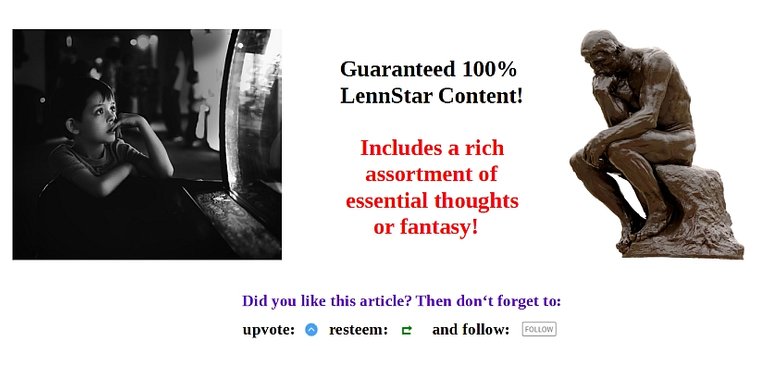Coming in contact with people from other countries and cultures is interesting, not least because they may have such a different view on things you take granted, that it dumbfounds you.
For me one of those things is that, if I say “Inequality is bad for a society”, they ask why.
Now, there are a lot of reasons. First of all there is the one history tells us: practically all revolutions against an established government were because of severe inequalities. Sometimes it was an inequality of power, uproars against a brutal dictatorship or suppression by a foreign country. But those are not exactly the things people think about when they hear inequality. Most people think about money.
And uprisings because of financial inequality very likely outnumber those of the other types together. Slaves that cannot even own themselves, the Boston Tea Party (and ultimately the US revolution), the revolts in the time of pauperism caused by the industrial revolution… even the very first record we have of humanity is about debt forgiveness.

As many people’s thinking seems trapped in economical terms, I think it would be good to point out bad economic results of a high inequality. I will split that up into three categories: individual level, company level, and society level (they tend to overlap though).
1. On the individual level
What rich people are supposed to do with their money is to invest it. Investing means using the money you have to buy something that will produce goods and, with the sale of those goods, will increase your income.
Increasingly that does not happen. There is more money made with shuffling money than by producing goods. Speculation far exceeds the global GDP. And all the effort put into this is wasted.
All that money (or the persons having it) needs to be protected. Guard labor is taking up a sizable portion of that money. Private security firms, gated communities and so on. Needless to say this is unproductive work, too.
Ironically, if you try to redistribute wealth, then this also hampers investments, because people shy away from investimg for fear of losing the new factory. This is one of the few times when I agree with the neoliberals half-way (because generally nobody takes your factory away from you, you just pay more taxes on your profits). But this effect is likely bigger the bigger the inequality is, so it is a sort of circle argument.
Company level
Trust. I am not sure if this is more on the personal level – the traders on the market who still make a contract by shaking hands, not by paying lawyers – or on a company level, where it is easier for a big corporation to get a credit than for a small, more effective firm or cooperative.

Anyway, less trust means less growth. I am sure you all have experienced a form of this. Ever wanted to buy a product on... ah… a big online retailer, and decided against it because the seller described his product in bad English and sells from flat 34, 26th floor, Huang Gao building 44?
But trust between different actors is not the only emotion that plays a role. A team’s or company’s performance is negatively effected by big inequality. Envy and positional (in-)fighting not only take away time and energy, but also conflict with team spirit.
High bonus payments for certain goals are also encouraging short-term actions. While nobody on the lower levels in a company gets paid more when 50% of the customer care staff gets kicked out, the big boss’ bonus does. And when after a few years that leads to the company losing customers in troves, the big manager with the historically superb performance just goes to a different company.
Highly paid job holders are also extremely reluctant to allow necessary restructuring if it could affect them. You can see easily see that on a similar topic: the vast majority of merger fails are caused by “incompatibility” between the staff.
And while Joe Truck Driver’s performance might not be lowered much by him cursing instead of grinning when driving on the highway, willful ignorance of each other on the management level can cause the bankruptcy of a company.

Inequality prevents productivity increase. Children from poor worker’s households are far less likely to study (not to talk about getting on the top level of companies) than children from rich (academical) households.
If you have to work to even buy the books for studying, you don’t have the time for networking (which is the most important success factor for higher managers), where you would not really be accepted anyway because of your “poor people’s habits”.
Society level
You could of course say that the studying problem is already a failure on the society level.
That is definitely true for the power imbalance between employer and employee. Generally the less power workers have, the higher is an individual company’s profit.
This however comes at a high cost for society. Low wages worker have less money to spend, which puts the brakes on the economy as a whole. The low wages also put no pressure on efficiency. Why automate something if you can just hire more cheap workers?
That is why in the US with it’s low minimum wage you can still see people manning toll booths, where in Norway you cannot. It would be too expensive.
A whole level comes into play with international super companies. Those monsters are extremely bad for the economy as a whole. First of all their market power prevents new entries, especially in the digital-tech sector (how many alternatives to Facebook can you name? For Windows or Word?)
If someone does manage to threaten them, those companies are bought and integrated into the trust. That is the reason why Facebook&Co pay billions for a startup with less than 100 employees. It is cheaper to do that than to have the competition.

But the worst is the “Too big to fail” dilemma. If a single company (or a hand full of them) becomes so big that they are effectively holding the whole economy as hostage, the shit has hit the fan and is distributed in big slices to everyone.
Remember the last big crisis, the second worst in modern times? It was caused by Big Money lobbying away regulations intended to prevent such a thing. Debt was ushered onto people who should not get credit, because the banks made money with it. Then greed caused the chasing of ever higher bonuses until the traders were in a mental state that would have put you in prison if caused by certain substances.
And than the bubble burst and the Average Joe had to pay the bankrupt banks a year’s worth of salary to allow them to continue taking away his home that he probably already had paid for (not counting interest).
Unnecessary to say that Joe and his Jane, struggling to feed their kids, did not invest into something that would improve the economy, right?
The “Saving of the Banks” was the biggest (short-time) transfer of real-economy wealth to the unproductive money-economy in human history.
Inspiration for this post: stumblingandmumbling

Inequality is inherent, and that is a fact of life unfortunately. In historic days physical size and strength (of males) were most valued, and so the largest and strongest became the leader. Of course even then intelligence was of high value, but the brute 'kept' individuals of learning and intelligence as his advisors (kings that could not read).
In the modern era (at least in developed nations) intelligence is the high valued attribute, of course to become Mark Zuckerberg you also need some education and a hunger for power, but people of intelligence do better overall.
We can look at wealth inequality and sigh that its unfair, but wealth inequality is a symptom, people amass wealth because they can, not because they must. Of course those with more wealth tend to gain more wealth and this accident of birth is what I think most people find brutally unfair, a person of average intelligence can be born a billionaire, while a genius never gets the break to make their fortune. In this case it seems the only logical solution is inheritance limitations. Perhaps tax is not the way to do it, perhaps we do what crypto does naturally, on death private keys become lost and coins are burned forever...
Congratulations @lennstar! You have completed the following achievement on the Steem blockchain and have been rewarded with new badge(s) :
<table><tr><td><img src="https://images.hive.blog/768x0/https://steemitimages.com/60x70/http://steemitboard.com/@lennstar/voted.png?201906301712" srcset="https://images.hive.blog/768x0/https://steemitimages.com/60x70/http://steemitboard.com/@lennstar/voted.png?201906301712 1x, https://images.hive.blog/1536x0/https://steemitimages.com/60x70/http://steemitboard.com/@lennstar/voted.png?201906301712 2x" /><td>You received more than 20000 upvotes. Your next target is to reach 25000 upvotes. <p dir="auto"><sub><em>You can view <a href="https://steemitboard.com/@lennstar" target="_blank" rel="noreferrer noopener" title="This link will take you away from hive.blog" class="external_link">your badges on your Steem Board and compare to others on the <a href="https://steemitboard.com/ranking/index.php?name=lennstar" target="_blank" rel="noreferrer noopener" title="This link will take you away from hive.blog" class="external_link">Steem Ranking<br /> <sub><em>If you no longer want to receive notifications, reply to this comment with the word <code>STOP <h6><a href="https://v2.steemconnect.com/sign/account-witness-vote?witness=steemitboard&approve=1" target="_blank" rel="noreferrer noopener" title="This link will take you away from hive.blog" class="external_link">Vote for @Steemitboard as a witness to get one more award and increased upvotes!